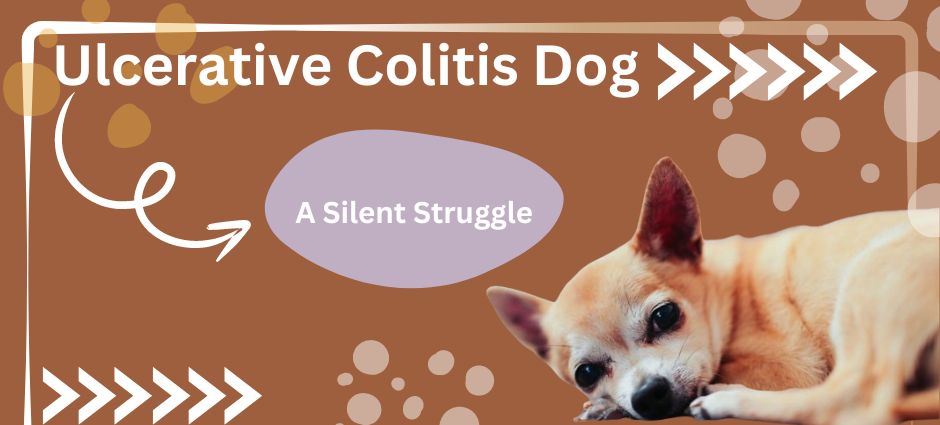Our pups are often seen as bundles of boundless energy, but beneath that playful exterior lies a complex world of emotions and physical needs. One of the most heartbreaking conditions that can affect our canine companions is Ulcerative Colitis.
It’s a silent struggle, often masked by typical doggy discomfort, making it challenging to recognize and address. Let’s delve into this condition of Ulcerative Colitis Dogs to understand its impact on our giant fluffy dogs.
What is Ulcerative Colitis Dog?
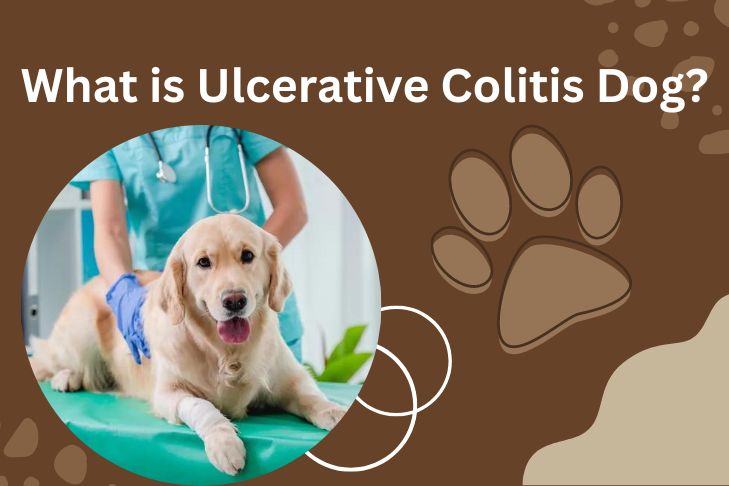
Think of your dog’s digestive system as a very busy town. In Ulcerative Colitis, this city is under siege. The colon, a crucial part of this system, becomes inflamed and develops painful ulcers. It’s like a constant, internal burn.
This chronic condition can significantly impact a dog’s quality of life, causing discomfort, fatigue, and a whole host of other issues.
Ulcerative Colitis Dog: The Invisible Battle
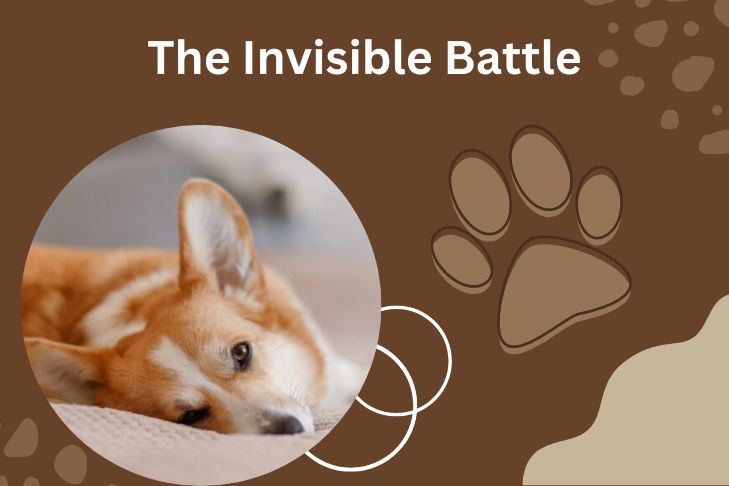
One of the most frustrating aspects of ulcerative colitis is its invisible nature. Unlike other conditions with obvious symptoms, this one often hides in plain sight. Your chunky dog might exhibit subtle signs like frequent bowel movements, diarrhea, or blood in their stool.
They might seem less energetic or have a decreased appetite. These symptoms can be easily dismissed as minor digestive upsets, delaying a crucial diagnosis.
Ulcerative Colitis Dog Signs: A World of Discomfort
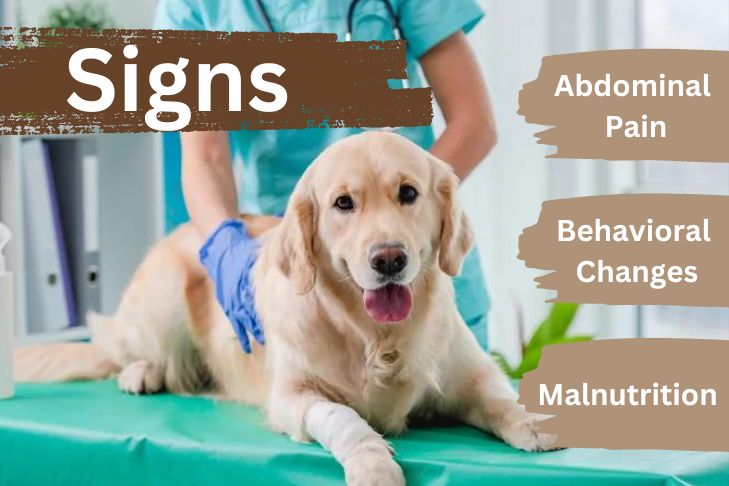
Living with Ulcerative Colitis is a daily battle for a dog. The constant inflammation and ulcers cause severe abdominal pain.
Imagine the discomfort of a persistent stomach ache multiplied tenfold. It’s a world of discomfort that we, as humans, can hardly fathom. This pain can lead to behavioral changes, making your once playful pup withdrawn and irritable.
Beyond the physical agony, Ulcerative Colitis can disrupt your huge white fluffy dog’s normal routines. Simple acts like going for a walk or playing fetch can become challenging and painful. They may also lose their appetite, which causes malnutrition in their body.
Additionally, frequent bowel movements can cause toxicity, discomfort and embarrassment, further impacting their quality of life. It’s essential to remember that behind the outward appearance of a seemingly normal dog lies a world of discomfort that we can only begin to comprehend.
Learn About: Is Tar Toxic To Dogs?
Ulcerative Colitis Dog? What To Do?
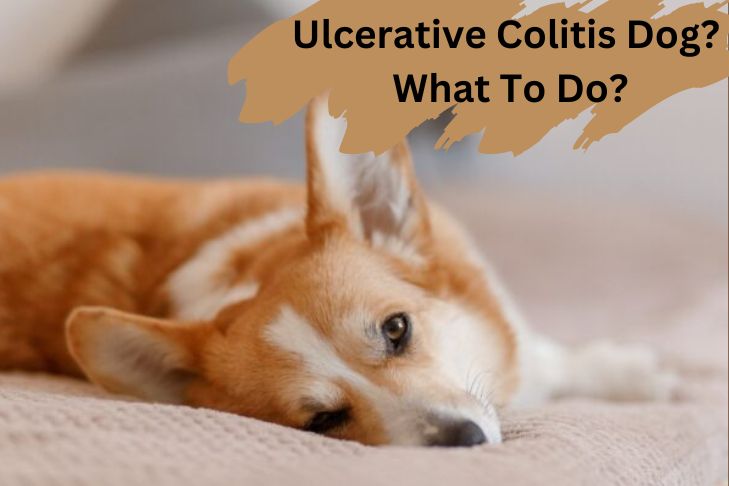
Ulcerative Colitis Dogs isn’t just a physical ailment; it takes a significant emotional toll on both the dog and their human companion. Watching your beloved pet suffer is heartbreaking. It can lead to feelings of guilt, helplessness, and frustration.
It’s essential to remember that you’re not alone in this journey. There are countless pet owners who understand the challenges and are ready to offer support.
For the betterment of your dog’s and your own mental health, we recommend joining dog support groups where people like you and dogs like yours can share each other’s feelings and understand the pain you go through on a daily basis.
Moreover, it not only helps your dog feel better and distracted when they see other dogs going through the same disease but also motivates you to navigate through this journey and do better each day.
Ulcerative Colitis Dog: Management Strategies
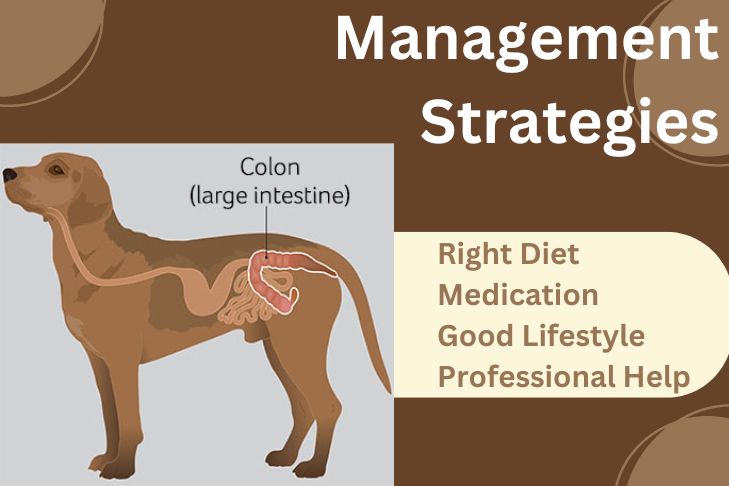
While there’s no cure for Ulcerative Colitis, there are effective management strategies available. With the right diet, medication, and lifestyle adjustments, many dogs can live happy and relatively symptom-free lives. You need to work closely with your vet and find the best treatment options.
Understanding Ulcerative Colitis is the first step towards helping your big dog breeds fluffy. By recognizing the symptoms, seeking professional help, and providing unwavering love and support, you can make a significant difference in their life.
Remember, you’re not just a dog lover; you’re their advocate, their comforter, and their constant source of strength.
Home Remedies: A Cautious Approach
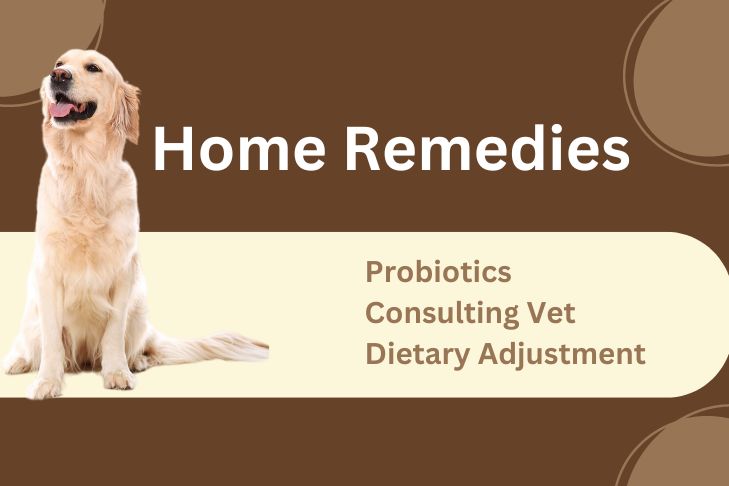
While it’s tempting to try home remedies for your dog’s ulcerative colitis, it’s crucial to consult your vet first. Some remedies, like probiotics and certain dietary adjustments, might offer relief under veterinary guidance. However, self-medication can be risky.
Avoid giving your dog human medications or supplements without consulting a professional. Some herbs or supplements could interact with prescribed medications or worsen your dog’s condition. Always prioritize veterinary advice to ensure the safety and well-being of your furry companion.
Conclusion
Regular check-ups are vital to monitor your ulcerative colitis Dog’s condition and adjust treatment as needed. Medications prescribed by your vet can help manage inflammation. Stress can exacerbate symptoms, so create a calm environment.
Regular exercise is beneficial, but avoid intense activities during flare-ups. Patience and love are essential as you navigate this journey with your huge white fluffy dog.



